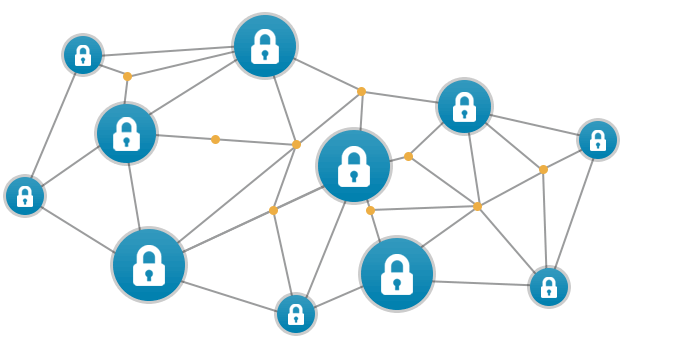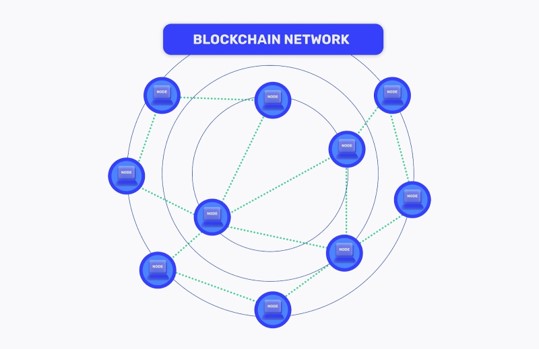Blockchain nodes are critical components of both the Web3 and cryptocurrency ecosystems. By operating a node, your device would maintain a copy of the distributed ledger, a network node performing essential actions.

A node’s primary responsibility is to validate every new block of network transactions. Nodes are the computers that handle a blockchain’s consensus mechanism. They frequently confirm incoming transactions and maintain the ledger’s mutual history. However, light nodes have fewer responsibilities, which makes them ideal for real-money online casinos.
When you operate your Bitcoin node, you have complete control over your Bitcoin and are not reliant on a third party. By hosting your node, you can ensure that your transactions are broadcast to the network and verified by miners. A Bitcoin node stores and proves the entire chain before adding a block to the chain.
Now, let’s dive into why running your node is so crucial:
- Increased privacy and security: Running your node allows you to verify transactions without revealing your IP address, making it more difficult for third parties to track your activity.
- Control over the network: By operating your node, you have greater control over the Bitcoin network, allowing you to enforce your preferred rules and avoid certain types of attacks.
- Support for the network: The more nodes that exist on the Bitcoin network, the more secure and decentralized it becomes. By operating your node, you are helping to support and strengthen the overall network.
- Learning opportunities: Operating a node can provide valuable learning opportunities, allowing you to gain a deeper understanding of how the Bitcoin network works.
Running your node is a crucial component of the Bitcoin ecosystem. It provides increased privacy and security, greater network control, and overall network support. Additionally, operating a node can offer valuable learning opportunities, making it a worthwhile endeavor for anyone interested in cryptocurrency.
Privacy and Security

Public nodes allow anyone to view all transactions, which can compromise your privacy. However, when you operate your own BTC node, your wallet can communicate with the blockchain in a secure and confidential manner.
By running your own node, you can initiate and submit transactions directly from the node without the need to use services that may compromise your privacy. Your node will also disregard any nodes that transmit incorrect transactions, providing complete independence for the node.
Furthermore, using a Bitcoin node eliminates the need for block explorers to check the status of your transactions. Block explorers can enable third parties to trace your transaction history back to your IP address, revealing your location, the amount of Bitcoin you own, and with whom you transact.
Using a Bitcoin node to conduct transactions increases your security because you do not need to frequently reveal your private keys to the internet. The most widely used Bitcoin node implementation, Bitcoin Core, allows users to create Partially Signed Bitcoin Transactions (PSBT), which are unsigned transactions that can be signed later with a separate wallet.
Running your own BTC node provides increased privacy and security, allowing you to transact directly from the node without compromising your information to third parties. Additionally, using a Bitcoin node eliminates the need for block explorers, increasing your independence and security. Finally, Bitcoin Core’s implementation allows for PSBTs, providing an additional layer of security for your transactions.
Decentralization
When a user operates a node at home, they receive a copy of the blockchain and the associated ruleset, and store it in their physical location. This provides them with unrestricted access to their node and enables them to use it as they see fit.
One of the key advantages of operating a node is that it helps to promote decentralization. In contrast, centralized services are vulnerable to attack due to their reliance on a single point of failure and their large computational power.
By operating a node, users help to prevent blockchain censorship and increase its redundancy. Additionally, this aids in the global dissemination of the blockchain. Operating a node is a valuable contribution to the security and decentralization of Bitcoin.
As the number of nodes in a decentralized system grows, the risk of vulnerability decreases. By reducing reliance on centralized points of failure, the network becomes more dispersed and resilient.
Improve Your Bitcoin Understanding
Learning how to operate a Bitcoin node not only offers several benefits but also provides valuable insights into Bitcoin’s inner workings. As one’s understanding of running a node increases, so does the potential to become more involved in the Bitcoin community and assist others in using it.
Even if someone doesn’t plan on running a node, it’s essential to understand what they are and how to set one up in case it becomes necessary, such as during a contentious fork.
While not everyone may be able to operate their node in the future, users should avoid relying on random nodes and instead entrust their funds to trusted technological specialists in their social circles. Connecting to arbitrary public Bitcoin nodes can be more dangerous than making the minor concession of relying on a trusted node.
Operating a node not only increases one’s knowledge of Bitcoin but also allows for greater participation in the community. By understanding improvements like Taproot and covenants, node operators can better discuss them with others.
As new challenges emerge, knowing how to run a node and its advantages can help individuals make more significant contributions to discussions around Bitcoin.
Running a node also provides complete control over one’s digital assets, as private keys can be linked to addresses. With a full copy of the Bitcoin blockchain on their computer, node operators can ensure the security and integrity of their funds.
In summary, learning to operate a Bitcoin node provides several advantages, including a deeper understanding of Bitcoin, increased participation in the community, and complete control over digital assets. Even if someone doesn’t plan on running a node, it’s important to understand how to set one up in case it becomes necessary.
DISCLAIMER: The Information on this website is provided as general market commentary and does not constitute investment advice. We encourage you to do your research before investing.
Join us to keep track of news: https://linktr.ee/coincu
Website: coincu.com
Annie
Coincu News





